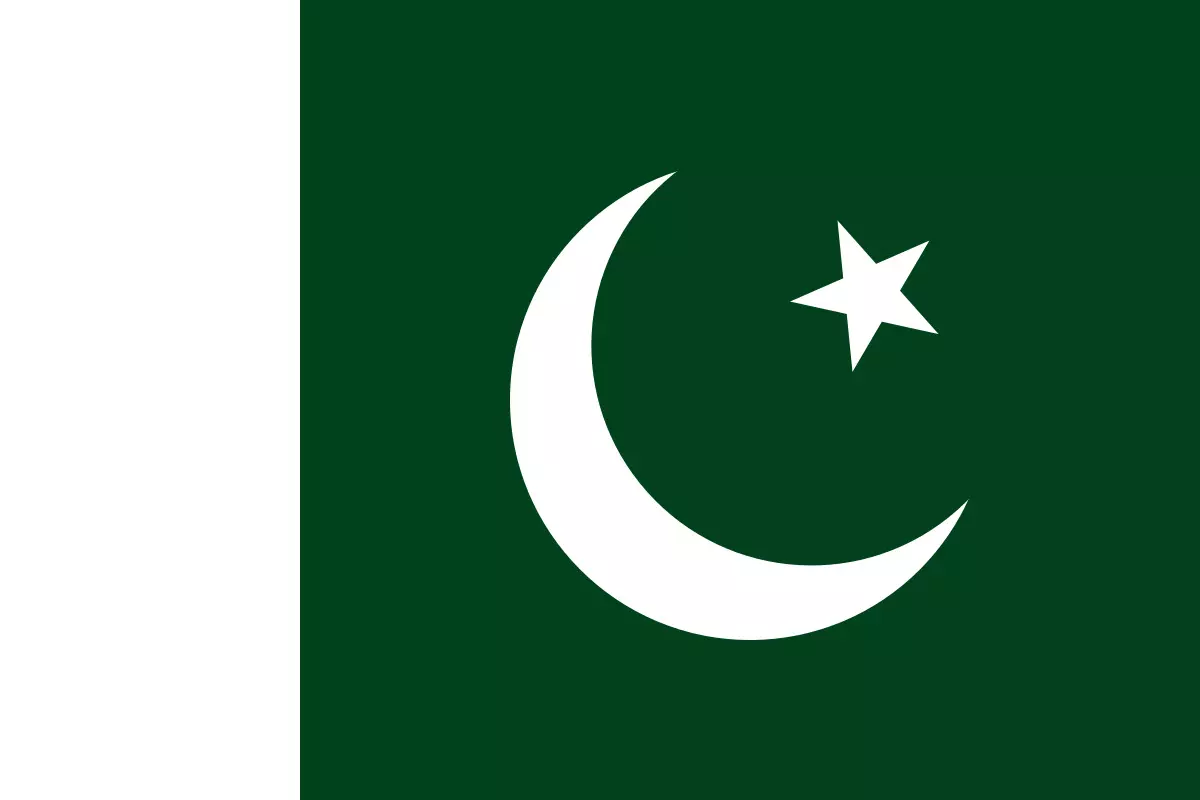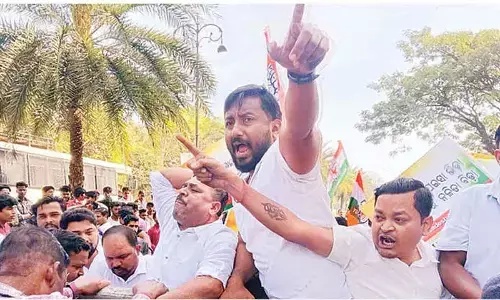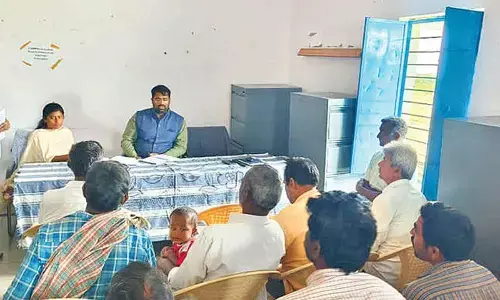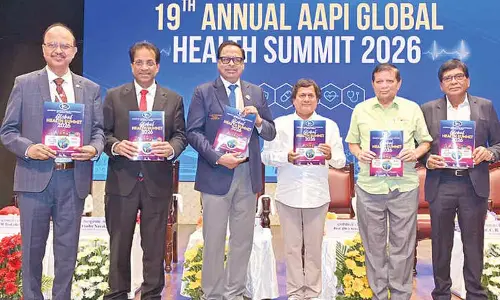Grave threat: Faith-based terrorism

Pakistan is openly fanning the Hindu-Muslim divide in India and instigating communal militancy so that it could facilitate the recruitment of potential terrorists. The recently banned Popular Front of India (PFI) - known to have been spreading radicalisation and working for ISIS - was linked also to SIMI, a front of Jamaat-e-Islami Hind, that was banned earlier after it had attracted notice for creating a terrorist body called Indian Mujahideen in the early Twenties this year
Amidst the continuing danger posed to national security by the Pak-instigated radicalisation and terrorism, many academicians and even some major think tanks are underplaying the problem by suggesting that since terrorism had still not been ‘defined’ it was not possible to properly assess it - in the Indian context they are only diverting attention from the doings of a hostile neighbour that was now hand in glove with China for stepping up anti-India operations.
The apologists of the new global terror- that was rooted in the exploitation of faith - are raising an academic discussion around the ‘definition’ of terrorism describing it as both a ‘tactic’ and a ‘doctrine’, and while noting the role of a ‘political goal’ behind terrorism, watering down the ambit of terrorist violence by suggesting that it was confined to ‘direct attacks on non-combatants and civilians’. This is a bookish interpretation since terrorism essentially is a ‘resort to covert violence for a perceived political cause’ and it can take recourse to such violence in innovative ways.
Terrorists indulge in surreptitious violence since the might of the state would be able to thwart an open attack. Also, without a ‘political cause’ terrorism would be reduced to sheer criminality which is certainly not the case. Wherever there is a question of ‘cause’ there has to be a ‘commitment’ which in turn is determined by ‘motivation’.
Now ‘motivation’ can be ‘ideological’ as was the case with Naxalism or an assertion of ethnic identity as was noticed in insurgencies of the North East in the Indian context. The new terror, however, is rooted in ‘faith-based’ motivation which in the case of Islam could be really strong if the call of ‘religion in danger’ or ‘protection of the faithful’ could be whipped up. Terrorism takes on State targets as well and does not only attack the civilian population - which it does of course for creating political destabilisation.
Terrorism facing India is an instrument of ‘proxy war’ that Pakistan - presently in an all-weather alliance with China - has been waging in Kashmir and elsewhere in the country. The new faith-based terror is now operating on a geopolitical scale too because its origins lay in the anti-West Jehad launched by some prominent Ulema in the 19th century on the Indian subcontinent and elsewhere, that unleashed ‘radicalisation’.
In the proxy war against India, Pak ISI had used Islamic extremist outfits under its control - such as Hizbul Mujahideen, Lashkare Toiba and Jaishe Mohammad- as an instrument of terrorism earlier but it was also subsequently able to induct Islamic radicals like those of Al Qaeda, Taliban and ISIS in covert attacks against this country. These latter outfits found shelter in Pakistan- deemed to be a US ally - even though the US-led West was the prime enemy of Islamic radicals in the Global War on Terror launched by the US in the wake of 9/11.
Many ‘experts’ on global terror miss the point that within the world of Islamic extremism, there are two distinct streams – one of the Islamic radicals who are ‘revivalists’ carrying the historical memory of the anti-British Jehad waged by the Wahhabi Ulema in India in the middle of the 19th century on the call of return to the pristine Islam of the period of Pious Caliphs and the other appearing later in the 20th century that was led by Islamic thinkers like Hasan Al Banna who advocated that ‘Quran is the best Constitution’ but also held that an Islamic state could live ‘in competition not conflict’ with the Western democracies.
On the other hand, the other fundamentalist Islamic force that arose in the region of Iraq and Syria in the name of Ikhwanul Musalmeen (Muslim Brotherhood) founded by Hasan Al Banna, devoted to launching a militant campaign against the pro-Soviet Arab regimes of Nasser and Hafiz Saeed and called for a return to an Islamic rule. This was appreciated by the US for obvious reasons. Soon Maulana Maudoodi - an admirer of Hasan Al Banna - created Jamaate Islami at Lahore with the same anti-Communist and pro-West ideology.
Notably, the rise of Taliban-Al Qaeda combined in the Afghan-Pak region was later matched by ISIS - a competing radical force that came up in the Iraq-Syria belt. India’s security concerns have multiplied because Pakistan has manoeuvred to cultivate radical outfits while retaining the goodwill of the US.
In fact, by pretending to mediate between the Taliban and the US in the talks held to facilitate the withdrawal of American troops from Afghanistan, Pakistan earned the goodwill of the US and at the same time ensured the reinstallation of the Taliban Emirate at Kabul to its great strategic advantage against India. Pak ISI is now using both Islamic extremists and Islamic radicals in its proxy war against India using terrorism as its instrument. Al Qaeda and ISIS proxies based in Pakistan have been floated for this purpose.
Those behind the raising of terrorists often play the card of ‘supremacism’ of faith that acted as a ‘pull’ factor in regard to ‘motivation’. The Sino-Pak axis has added a new dimension to India’s national security in which external threats are causing internal destabilisation because of the planned attempt of the two hostile neighbours to fish in our troubled waters.
Pakistan is openly fanning the Hindu-Muslim divide in India and instigating communal militancy so that it could facilitate the recruitment of potential terrorists. The recently banned Popular Front of India (PFI) - known to have been spreading radicalisation and working for ISIS - was linked also to SIMI, a front of Jamaat-e-Islami Hind, that was banned earlier after it had attracted notice for creating a terrorist body called Indian Mujahideen in the early Twenties this year.
Pak ISI has thus been exploiting various Islamic extremist and radical outfits to create trouble for India. Radicalisation is a geopolitical danger but is a prime threat to the security of India on account of the mischief potential of Pakistan, Taliban domination of Afghanistan and the support of China to Pakistan on the issue of Kashmir.
India has done well to highlight the threat of terrorism at every international forum and expose the danger facing the democratic world as a whole from the Sino- Pak combine - an alliance between a Marxist dictatorship and a fundamentalist regime.
In today’s situation, India’s internal security has become highly vulnerable to the effects of civil society groups with vested interests joining hands with international lobbies led by Pakistan, to spread the narrative of alleged lack of protection for Muslim minority under the present regime.Indian democracy must continue to derive strength from a healthy sense of nationalism of all its citizens regardless of class, creed or region- in keeping with the mandate of ‘one man one vote’ on which it was conceived. It should be remembered that the Preamble to our Constitution itself appeals to all citizens to work for the ‘Nation’.
(The writer is a former Director of Intelligence Bureau. Views expressed are personal)















